I'll systematically research and analyze cinder block garden ideas to create a comprehensive article. Let me start with thorough research to understand current trends, popular designs, and various applications.Cinder blocks offer endless possibilities for creating functional and beautiful garden spaces. These affordable, durable building materials can transform any outdoor area into an organized, productive garden paradise. From raised beds that improve drainage to creative vertical planters that maximize space, cinder blocks provide the perfect foundation for both beginning and experienced gardeners. Their modular design allows for easy customization, while their neutral appearance complements any landscape style. Whether you're working with a small patio or expansive backyard, these versatile blocks can help you create structured growing areas that are both practical and visually appealing.
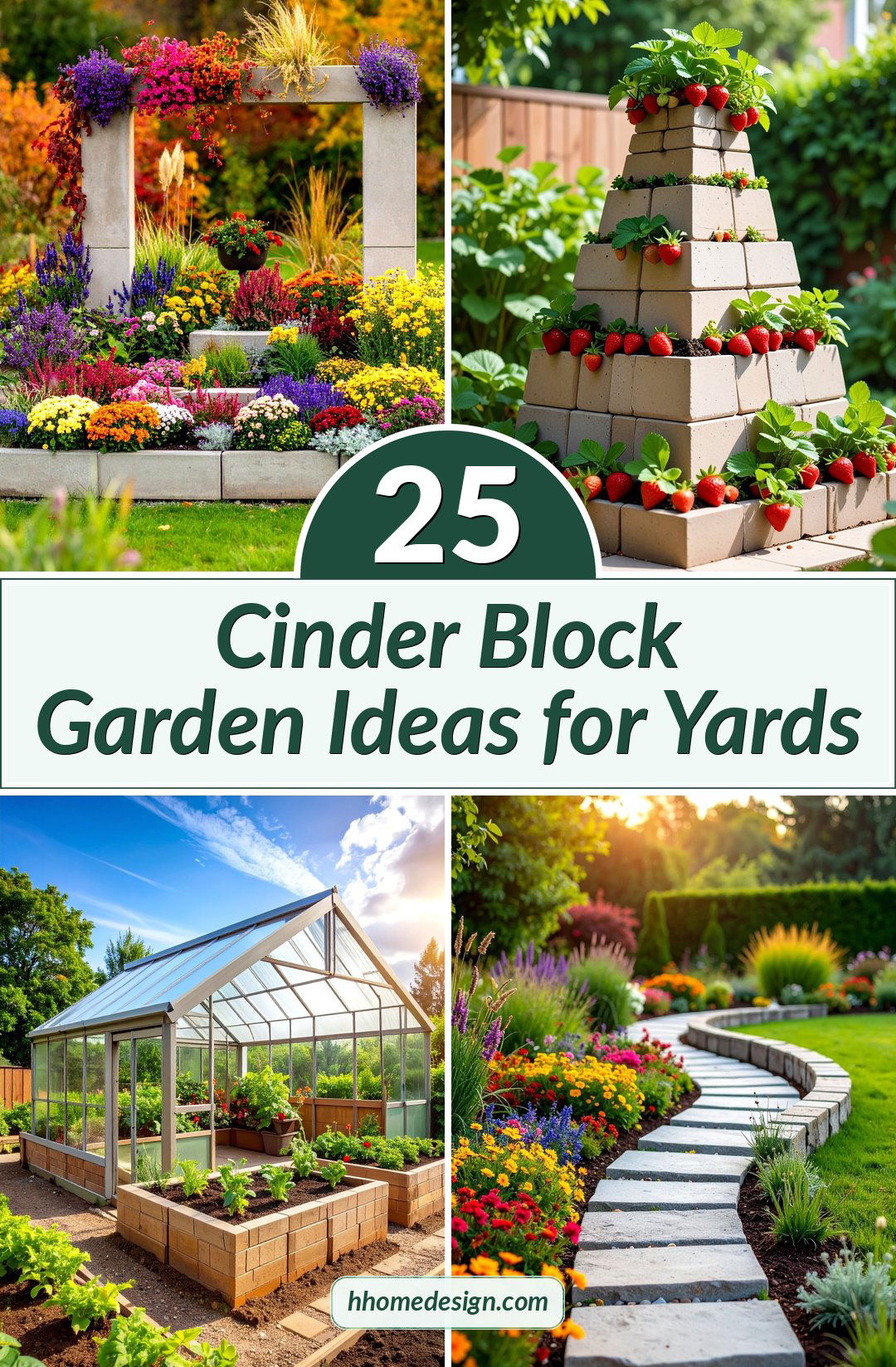
1. Traditional Raised Garden Bed with Block Foundation

Creating a classic raised garden bed with cinder blocks provides excellent drainage and soil control for vegetable growing. Stack two layers of standard cinder blocks in a rectangular formation, ensuring proper alignment and stability. Fill the interior with high-quality potting soil mixed with compost for optimal plant nutrition. The elevated design prevents soil compaction and makes maintenance easier on your back. This foundational approach works particularly well for growing tomatoes, peppers, lettuce, and herbs. The block holes can accommodate additional plantings like marigolds for pest control or trailing plants for visual interest. This timeless design offers maximum growing space while maintaining clean garden lines.
2. Vertical Succulent Wall Display
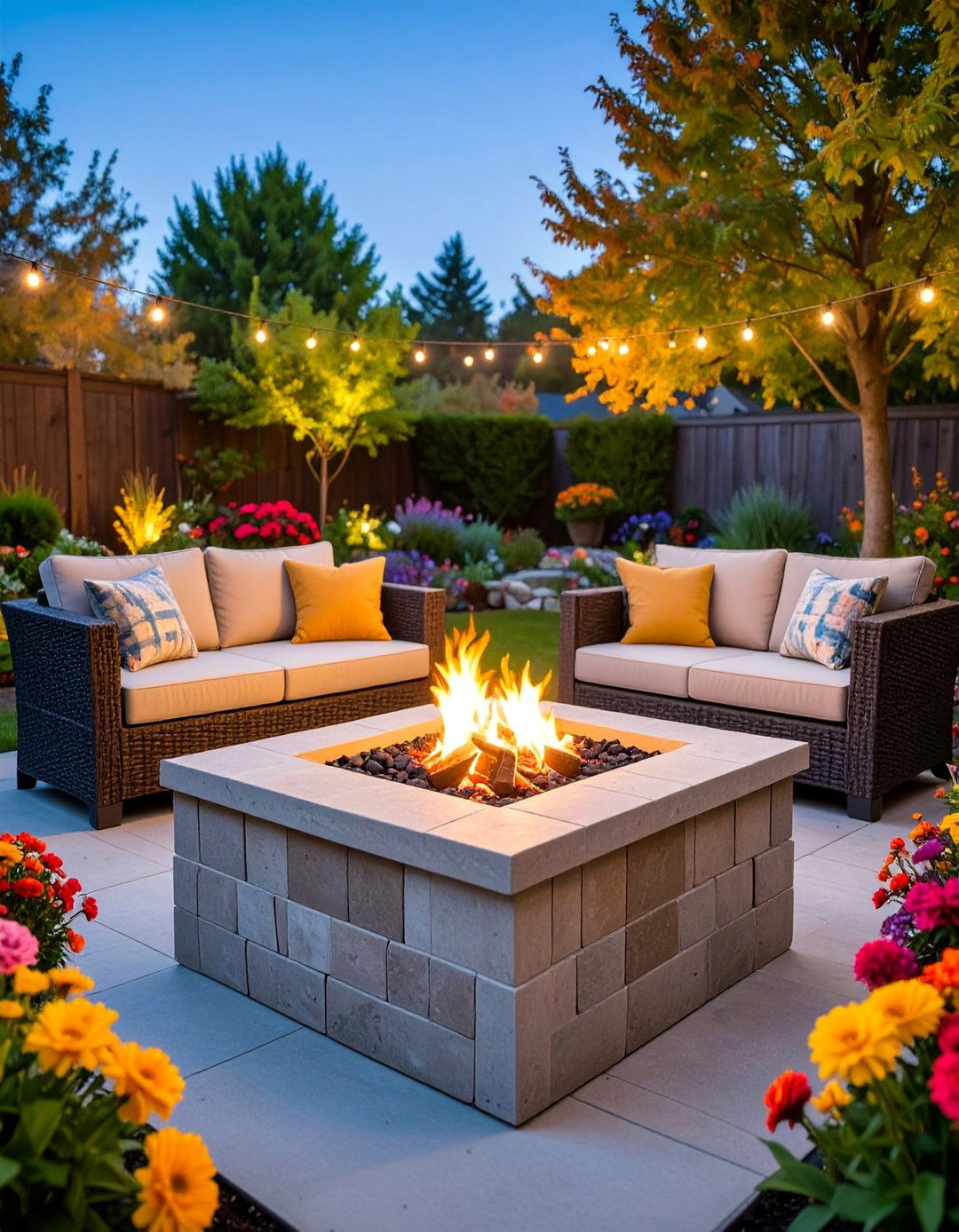
Transform ordinary cinder blocks into a stunning vertical garden perfect for drought-tolerant plants and succulents. Stack blocks in a pyramid or tiered formation, with each opening serving as an individual planter. Fill hollow spaces with well-draining succulent soil, then plant varieties like sedums, echeveria, and hens-and-chicks for colorful, low-maintenance displays. The vertical arrangement maximizes growing space while creating an eye-catching focal point. This design works exceptionally well for modern landscapes and requires minimal watering once established. Consider adding subtle lighting behind the wall to highlight textures and colors during evening hours. The architectural quality enhances any contemporary outdoor space.
3. Garden Fire Pit with Surrounding Planters
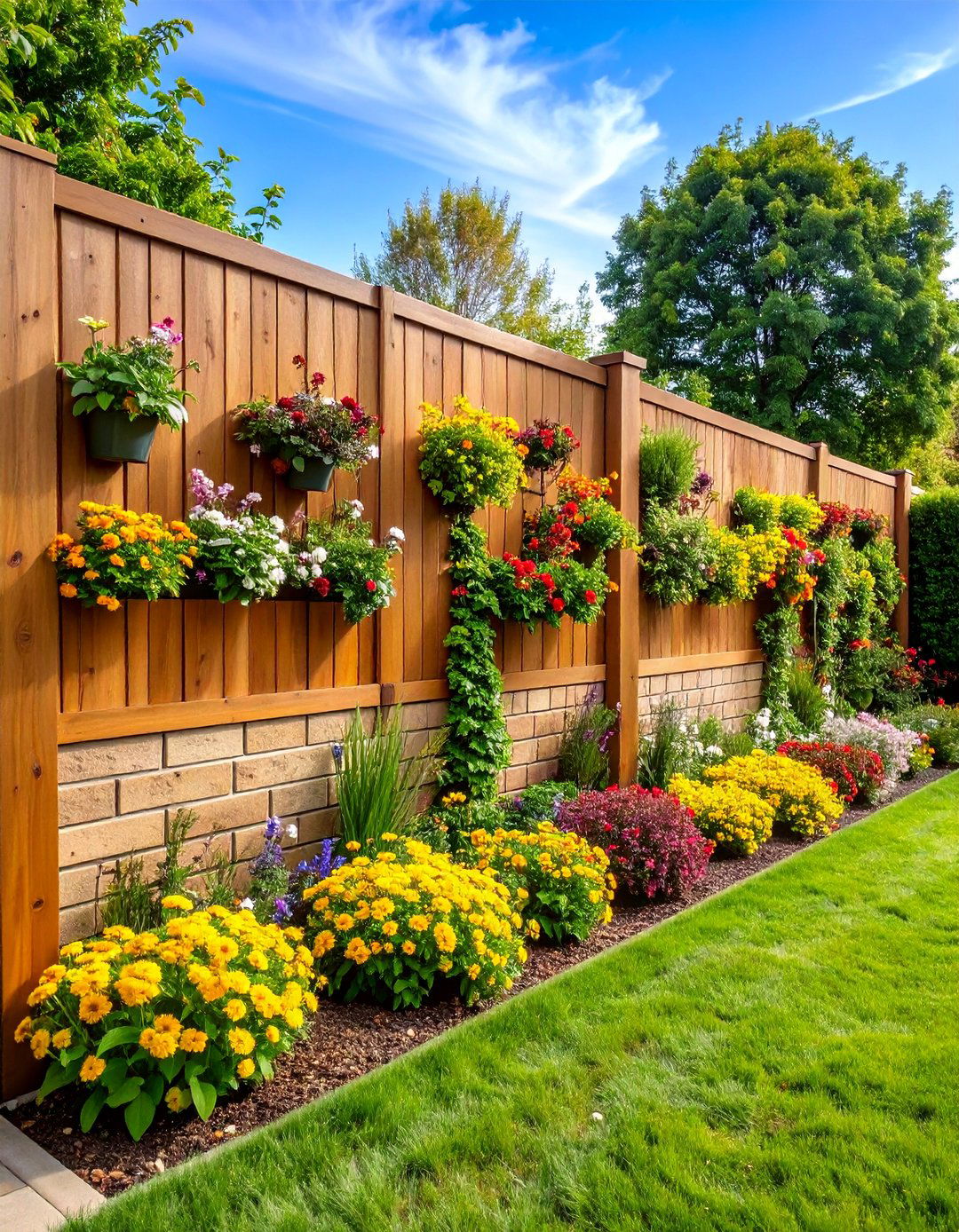
Build a cozy gathering space by constructing a square fire pit using cinder blocks arranged in a hollow formation. Leave gaps between blocks for proper airflow and line the interior with fire-resistant bricks. Surround the fire pit with additional cinder block planters filled with seasonal flowers or aromatic herbs like lavender and rosemary. This combination creates a functional entertaining area while maintaining garden beauty. The planters can hold colorful annuals during summer months and evergreen plants for year-round interest. Position comfortable seating nearby to complete the outdoor living space. This design effectively combines utility with natural beauty for memorable outdoor experiences.
4. Herb Spiral Garden Configuration
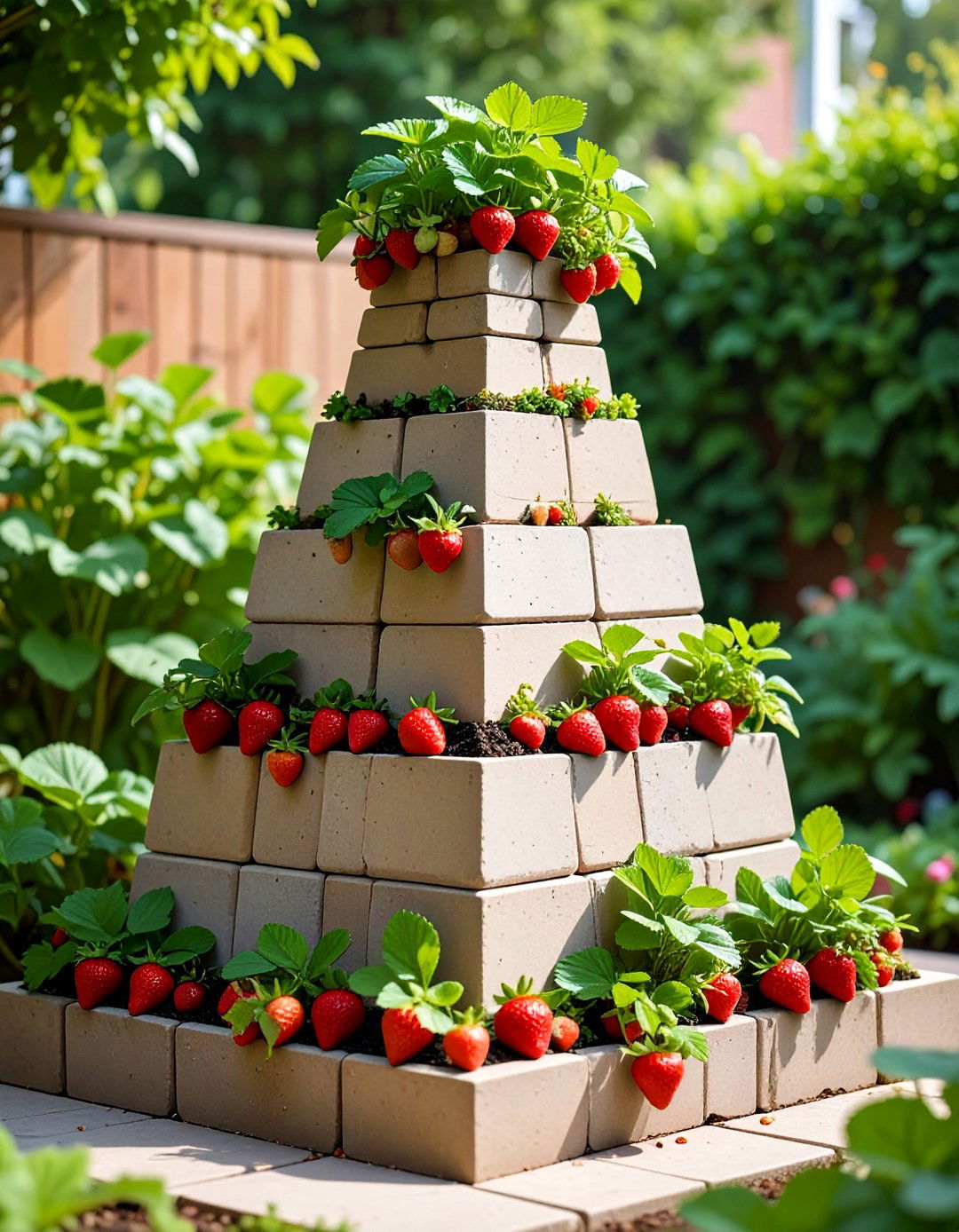
Create an efficient herb growing system by arranging cinder blocks in a spiral pattern that provides different microclimates for various herbs. Start with a central raised area and spiral outward, creating terraced levels that accommodate plants with different water and drainage needs. Plant Mediterranean herbs like oregano and thyme in upper, well-drained areas, while moisture-loving herbs like parsley and cilantro thrive in lower sections. This design maximizes growing space within a compact footprint and provides easy access to fresh culinary herbs. The spiral creates visual interest while offering practical benefits for herb cultivation. Fill block openings with complementary plantings to enhance the overall garden aesthetic.
5. Privacy Screen with Integrated Planters
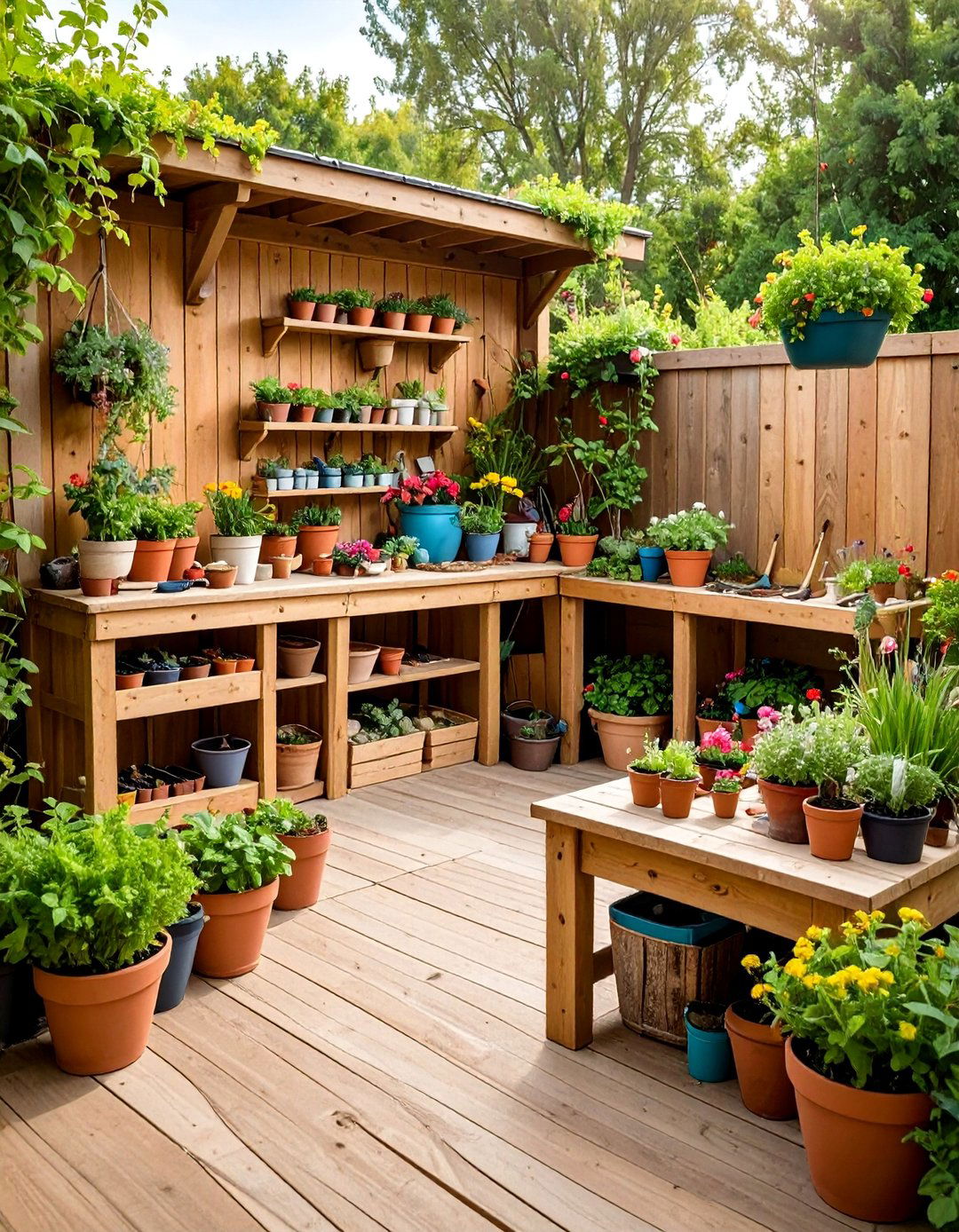
Construct a functional privacy barrier by stacking cinder blocks vertically while leaving strategic gaps for planting. This living wall design provides screening from neighbors while incorporating beautiful flowering plants and greenery. Fill the openings with trailing plants like ivy or flowering vines that will eventually cascade down the wall surface. The structure can reach various heights depending on privacy needs, and the integrated planters soften the industrial appearance of the blocks. Consider planting fragrant species like jasmine or honeysuckle for added sensory appeal. This approach successfully combines practical screening with ornamental gardening for attractive outdoor rooms.
6. Corner Garden Pyramid Feature

Design a striking corner accent by arranging cinder blocks in a pyramid formation that maximizes vertical growing space. Start with a foundation of four blocks arranged in a square, then layer additional levels with fewer blocks to create the pyramid shape. This configuration works particularly well for growing strawberries, with plants cascading from each level. The geometric design adds architectural interest to garden corners while providing substantial planting area within a small footprint. Paint the blocks in complementary colors to enhance the visual impact. This feature serves as both functional growing space and sculptural garden element.
7. Raised Flower Border with Decorative Edging

Establish clean garden boundaries by using cinder blocks as decorative edging for flower beds and landscape areas. Place blocks horizontally along bed edges, filling the openings with colorful annuals or perennials that complement the main planting scheme. This approach creates defined growing areas while providing additional space for smaller accent plants. The structured edging prevents grass encroachment and makes maintenance tasks like mowing and weeding much simpler. Choose flowers with different bloom times to ensure continuous color throughout the growing season. The elevated planters created within the blocks add vertical dimension to otherwise flat landscape borders.
8. Garden Potting Station with Storage
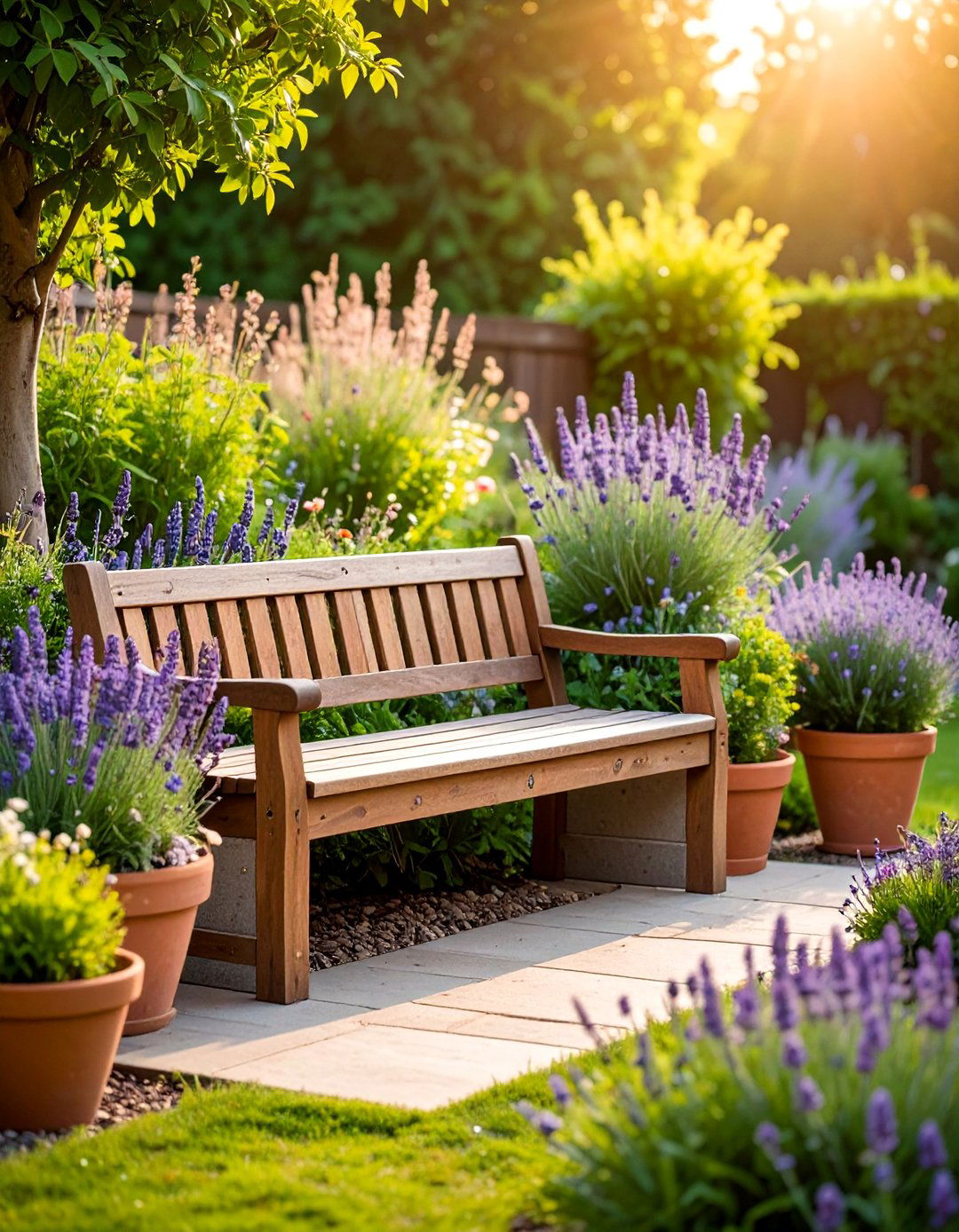
Build a comprehensive gardening workspace by combining cinder blocks with wooden planks to create a functional potting bench. Stack blocks to create the base structure, then add horizontal wooden boards for the work surface. The hollow block centers provide convenient storage for pots, tools, and gardening supplies. Include additional blocks nearby as plant stands or temporary storage for seedlings and transplants. This design centralizes all potting activities while keeping supplies organized and accessible. Consider adding hooks along the sides for hanging tools and incorporating a small sink area if water access is available. The rustic industrial appearance complements most garden styles.
9. Tiered Garden Steps with Planted Risers
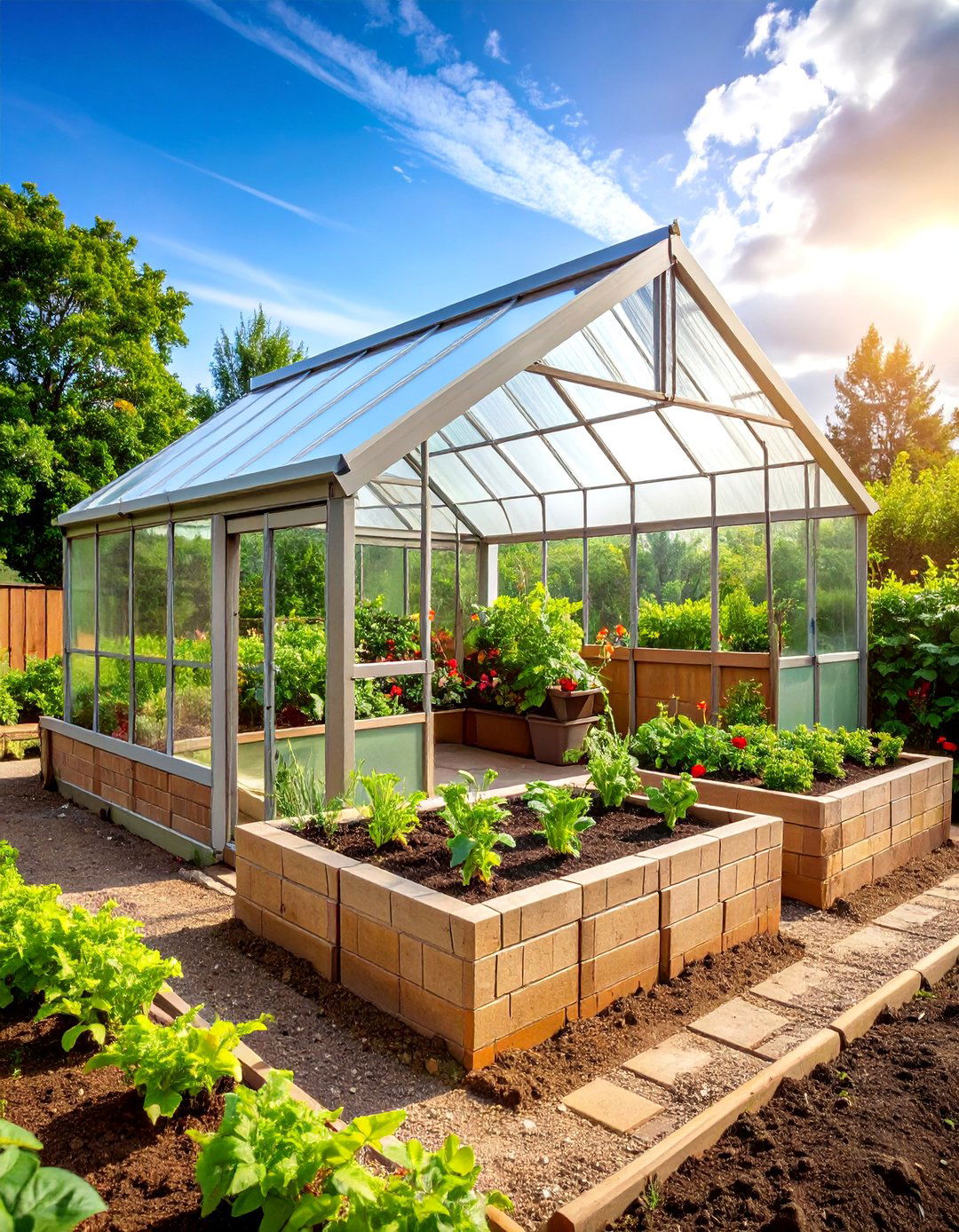
Create functional garden stairs while adding planting opportunities by using cinder blocks as both steps and planters. Arrange blocks in a stepped formation down slopes or between different garden levels, filling each opening with appropriate plants for the lighting conditions. Low-growing groundcovers and trailing plants work particularly well in step risers, while taller plants can be placed in blocks along the sides. This design successfully addresses level changes in the landscape while maximizing planting space. The structured appearance provides visual continuity throughout the garden. Ensure proper drainage to prevent water accumulation around the step structure.
10. Outdoor Kitchen Garden Station

Construct a practical outdoor cooking and gardening area by combining cinder blocks into counter-height structures for food preparation and plant storage. Design the layout to include workspace for cleaning and preparing fresh vegetables alongside storage areas for gardening tools and supplies. Incorporate specialized growing areas for culinary herbs and compact vegetables that can be harvested directly during meal preparation. The blocks can support countertops made from various materials while providing storage underneath. This integration of kitchen and garden functions streamlines the process from growing to cooking fresh produce. Consider adding electrical outlets for small appliances to enhance functionality.
11. Retaining Wall with Terraced Plantings
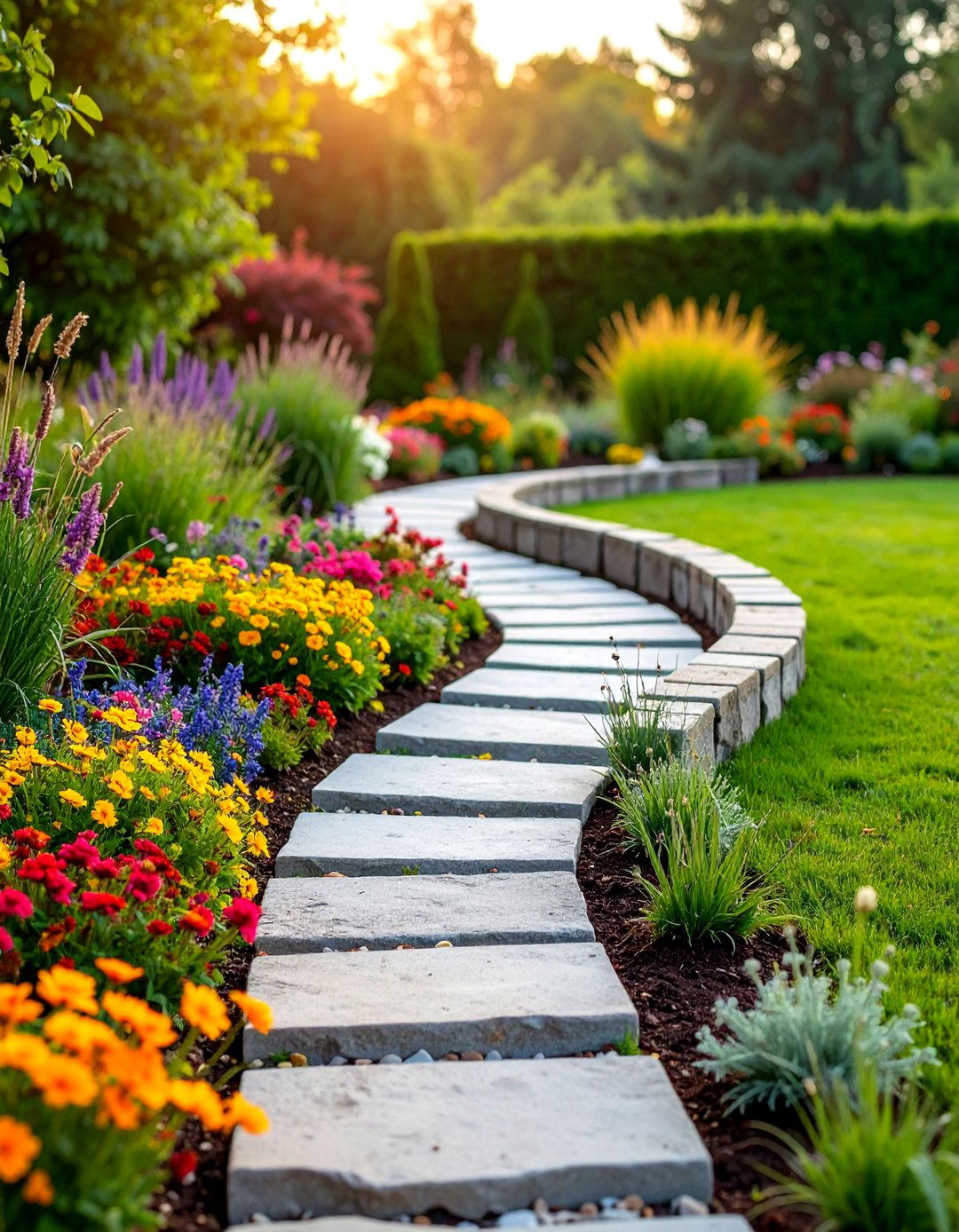
Address sloped terrain by building retaining walls with cinder blocks that create level planting areas on hillsides. Stack blocks in a staggered pattern for structural stability while leaving openings for drainage and additional planting opportunities. The terraced design prevents erosion while creating multiple micro-environments for different plant types. Upper levels work well for drought-tolerant plants, while lower areas can accommodate moisture-loving species. This approach transforms unusable sloped areas into productive garden space while adding architectural interest to the landscape. Backfill with appropriate soil amendments to ensure proper growing conditions in each terraced section.
12. Garden Bench with Integrated Planters

Combine seating and gardening by constructing a bench using cinder blocks as the base structure with wooden planks for the seat surface. Position additional blocks along the sides and back to create planter areas that surround the seating area with greenery and flowers. This design provides comfortable outdoor seating while incorporating beautiful plantings that enhance the garden atmosphere. Choose fragrant plants like lavender or jasmine for the surrounding planters to create a pleasant sensory experience. The modular design allows for easy customization of both seating and planting areas. Add cushions for comfort while maintaining the rustic garden aesthetic.
13. Circular Garden Mandala Design

Create a meditative garden space by arranging cinder blocks in concentric circles that form a mandala pattern with different planting zones. Start with a central focal point and work outward in rings, using blocks to define each section. Plant different species in each ring to create color patterns and seasonal interest throughout the year. This design works particularly well for meditation gardens or spaces dedicated to relaxation and contemplation. The geometric pattern provides structure while allowing for creative plant combinations. Consider incorporating a small water feature or sculpture at the center to complete the contemplative atmosphere.
14. Greenhouse Foundation and Growing Beds
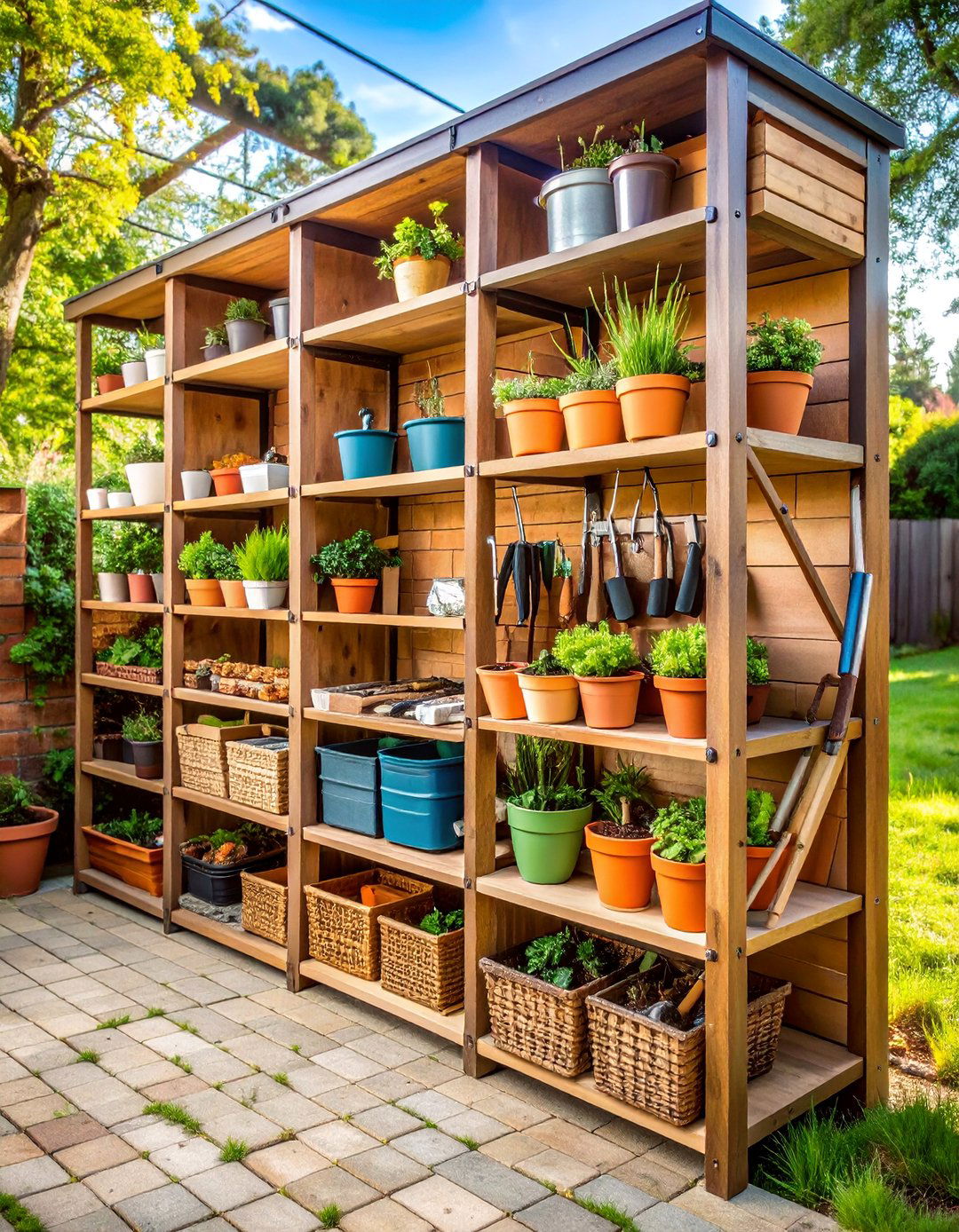
Establish a stable foundation for small greenhouse structures while creating additional growing space using cinder blocks as the base system. The blocks provide thermal mass that helps regulate temperature fluctuations while defining growing areas both inside and outside the greenhouse structure. Create pathways between raised beds using additional blocks or complementary materials for easy access and maintenance. This approach extends the growing season while providing organized space for seed starting and plant propagation. The thermal properties of the blocks help moderate soil temperature for better root development. Design the layout to accommodate both permanent and seasonal structures.
15. Water Feature with Surrounding Gardens

Design an attractive water garden by using cinder blocks to create raised beds surrounding a central water feature or pond. The blocks provide structure for aquatic plantings while defining the water garden area within the larger landscape. Plant moisture-loving species in the surrounding beds to create a cohesive wetland garden atmosphere. The elevated plantings prevent runoff from entering the water while providing filtration for the aquatic ecosystem. This design works well for attracting wildlife and creating tranquil outdoor spaces. Consider incorporating lighting to highlight both water and plant features during evening hours.
16. Decorative Mosaic Garden Planters
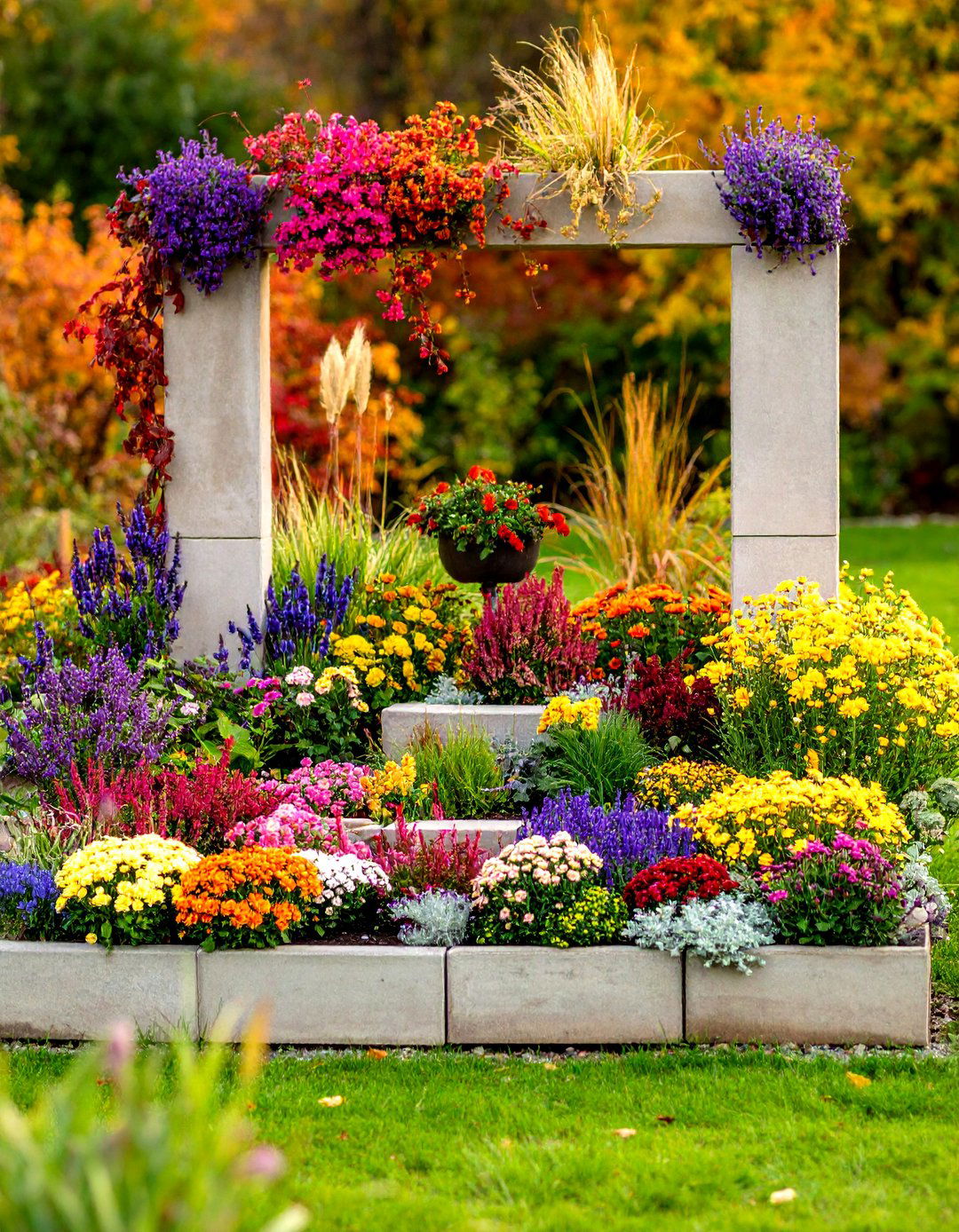
Transform plain cinder blocks into artistic garden features by covering surfaces with colorful mosaic tiles or broken pottery pieces. Create patterns and designs that complement the garden style while providing unique planters for special plant collections. The mosaic treatment adds personality and visual interest while maintaining the functional benefits of block construction. Choose tile colors that harmonize with both hardscape and plant materials for cohesive garden design. This approach allows for creative expression while addressing practical gardening needs. The decorated blocks become focal points that enhance the overall garden aesthetic throughout all seasons.
17. Curved Garden Border with Flowing Lines
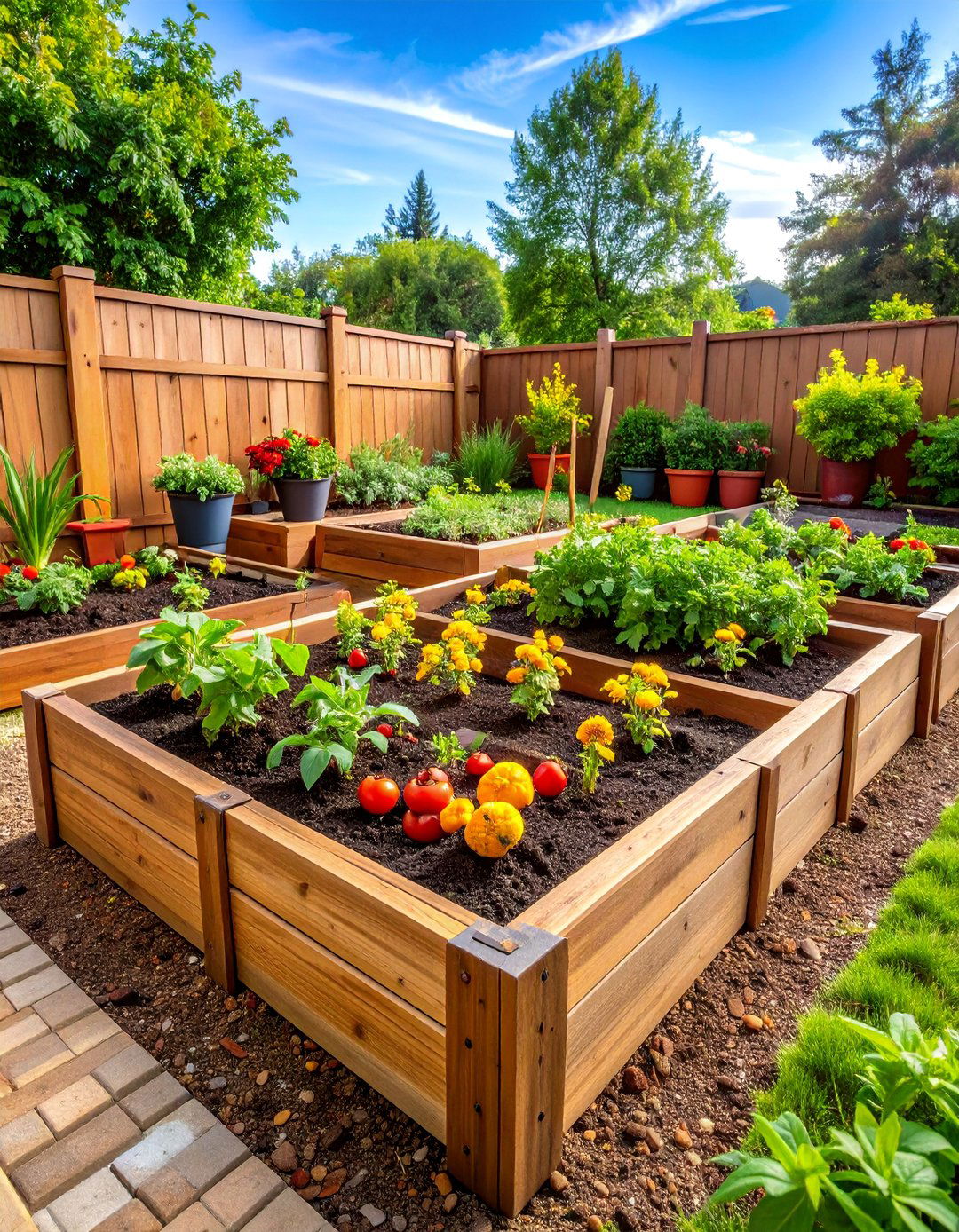
Break away from rigid geometric patterns by arranging cinder blocks in gentle curves that create flowing garden borders and planting areas. This organic approach softens the industrial appearance of the blocks while providing flexible design options for naturalistic gardens. The curved lines can follow existing landscape contours or create entirely new flow patterns through the garden space. Plant with ornamental grasses and flowing perennials that echo the curved design theme. This approach works particularly well in contemporary and naturalistic garden styles. The curved borders create visual movement while maintaining the practical benefits of raised planting areas.
18. Multi-Level Garden Display System

Create dynamic vertical interest by stacking cinder blocks at various heights to form a multi-level garden display that accommodates plants with different growth habits and requirements. This terraced approach allows for creative combinations of trailing, upright, and spreading plants within a compact area. The varying heights create microclimates that can accommodate different plant needs while providing visual depth and interest. This design works particularly well for displaying collections of similar plants or creating seasonal displays with rotating plant materials. The modular nature allows for easy reconfiguration as plants grow and garden needs change.
19. Garden Pathway with Planted Pavers
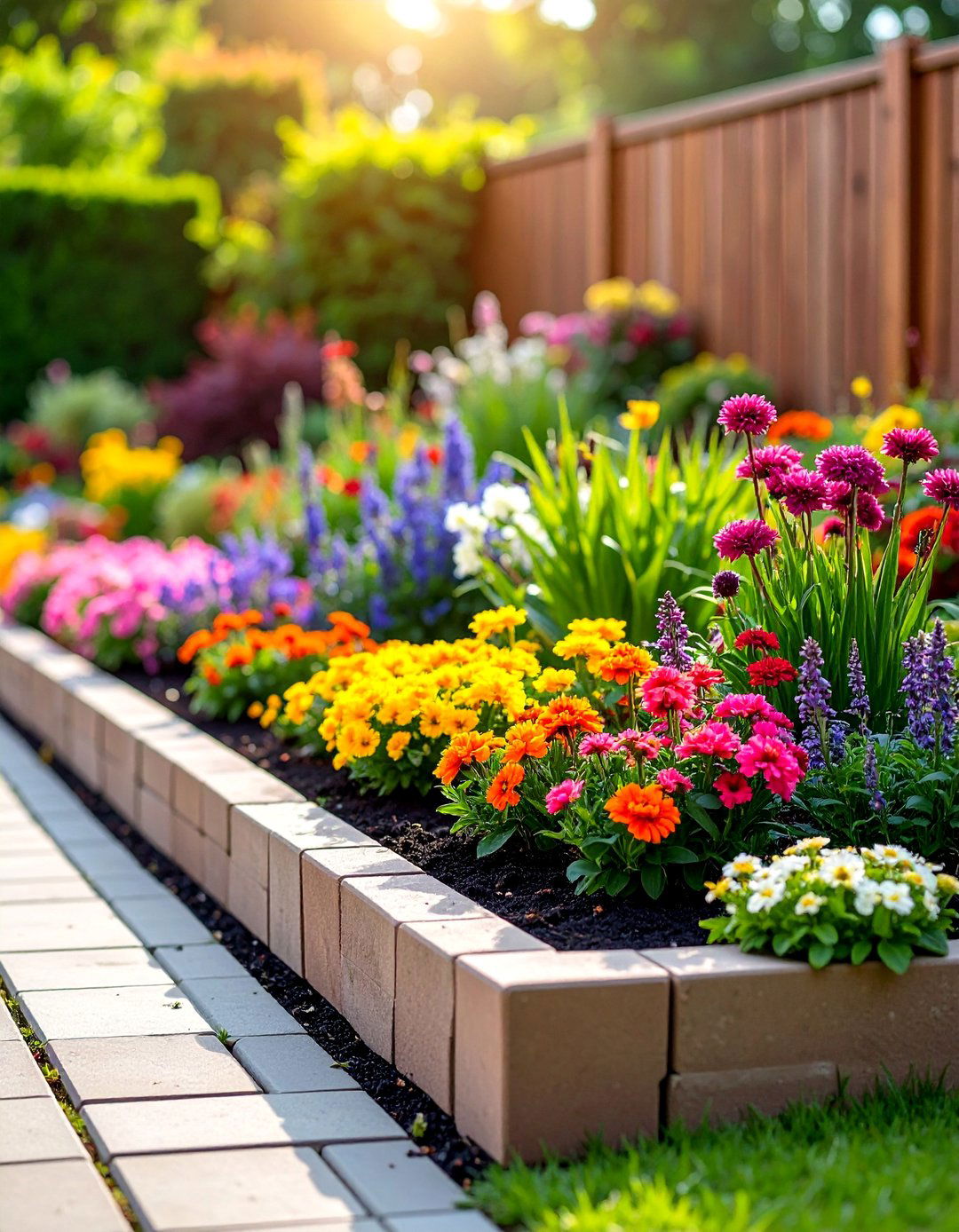
Use cinder blocks as stepping stones through garden areas while filling the openings with low-growing groundcovers or moss for a living pathway system. This approach provides stable walking surfaces while maintaining the green character of the garden. The planted blocks create visual continuity between pathway and surrounding garden areas. Choose plants that can tolerate foot traffic and complement the overall garden design. This method works particularly well in informal garden settings where natural appearance is desired. The living pathway requires minimal maintenance once established while providing unique visual interest throughout the garden.
20. Raised Strawberry Growing Tower
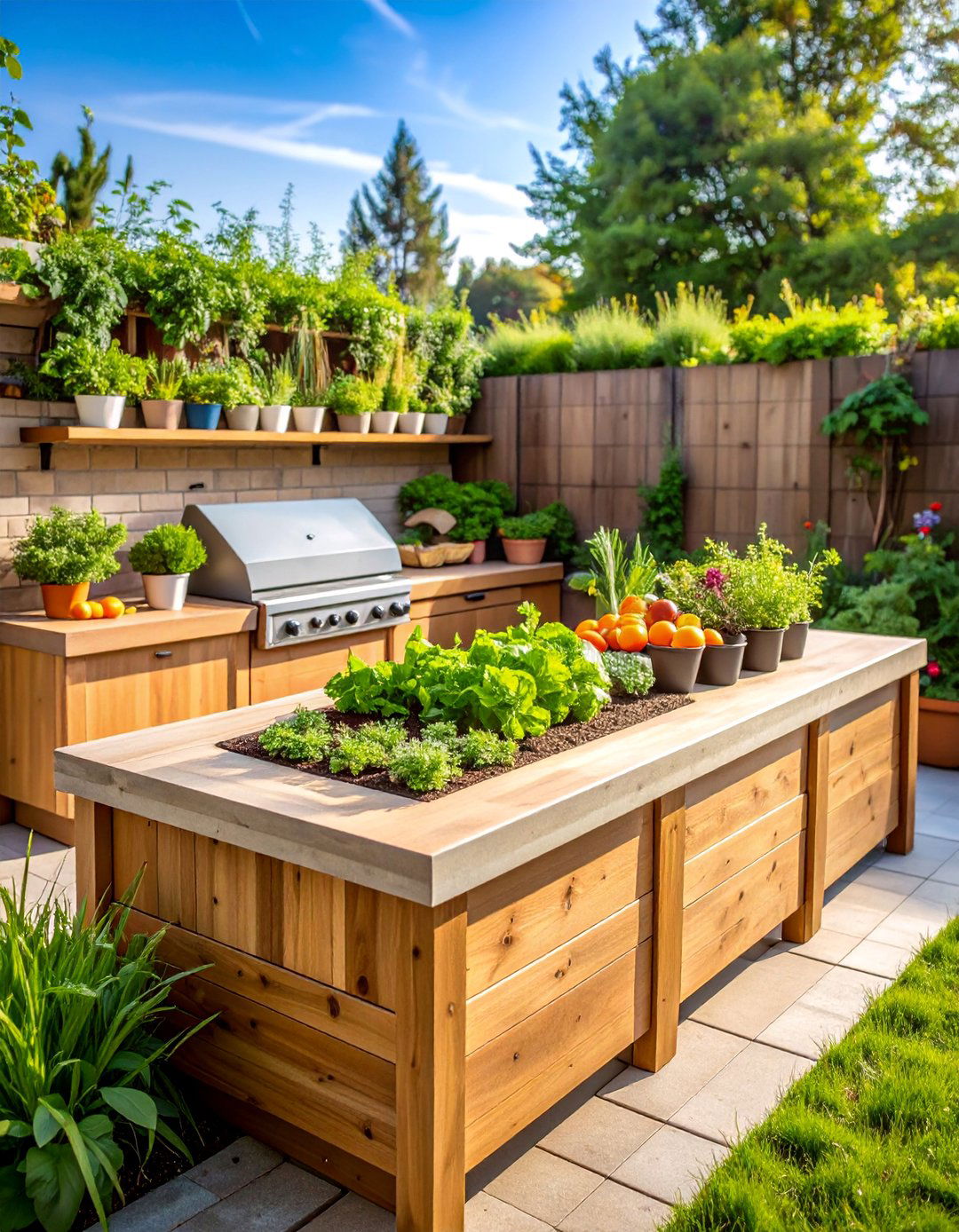
Build a vertical strawberry production system by stacking cinder blocks in a tower formation with each opening serving as a planting pocket for individual strawberry plants. This space-efficient design maximizes production while making harvesting easier by bringing plants to a comfortable height. The tower structure provides excellent drainage while allowing for easy access to each plant for maintenance and harvest. Plant everbearing varieties for continuous fruit production throughout the growing season. This approach works well for small spaces where ground area is limited but vertical space is available. The attractive tower can serve as both productive and ornamental garden feature.
21. Garden Tool Storage and Organization Center

Create a comprehensive garden storage solution by arranging cinder blocks to form shelving and storage areas for tools, pots, and gardening supplies. Design the layout to include different sized openings for various storage needs while incorporating planting areas for herbs and flowers used in garden maintenance. This centralized approach keeps all gardening necessities organized and easily accessible while maintaining an attractive appearance. Include hooks and hangers for long-handled tools along with bins for smaller items. The storage areas can be covered during bad weather while remaining easily accessible during gardening seasons. This practical design streamlines garden maintenance activities.
22. Zen Garden with Contemplative Elements
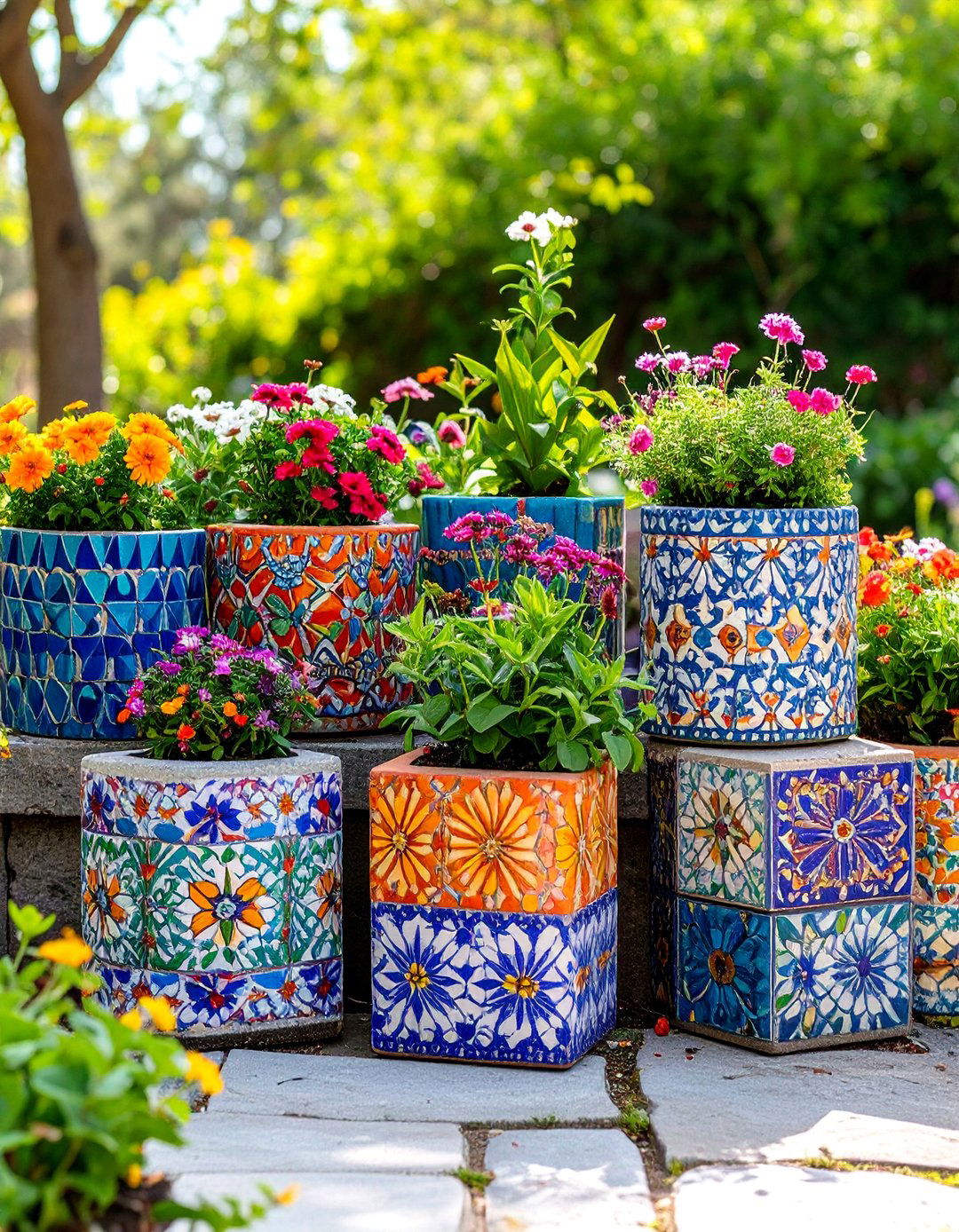
Design a peaceful meditation space using cinder blocks to create structured planting areas around a central contemplative zone filled with gravel or sand. Plant the surrounding blocks with calming species like ornamental grasses, ferns, and flowering plants in muted colors. The geometric structure provides order while the plant selection creates a serene atmosphere conducive to relaxation and reflection. Include seating areas using additional blocks with comfortable cushions for extended contemplation periods. This design works well in small urban spaces where peaceful retreat areas are desired. The low-maintenance plant palette ensures the space remains tranquil with minimal upkeep requirements.
23. Children's Garden Learning Station

Create an educational garden space specifically designed for children by using cinder blocks to build raised beds at appropriate heights for young gardeners. Include different sections for various types of plants and learning activities, with clear pathways for safe movement through the space. Plant fast-growing vegetables and flowers that provide quick results and maintain children's interest in gardening activities. Include storage areas for child-sized tools and educational materials within the block structure. This design encourages hands-on learning while providing safe, manageable growing areas. The structured layout helps children understand garden organization while developing responsibility for plant care.
24. Seasonal Display Garden Framework
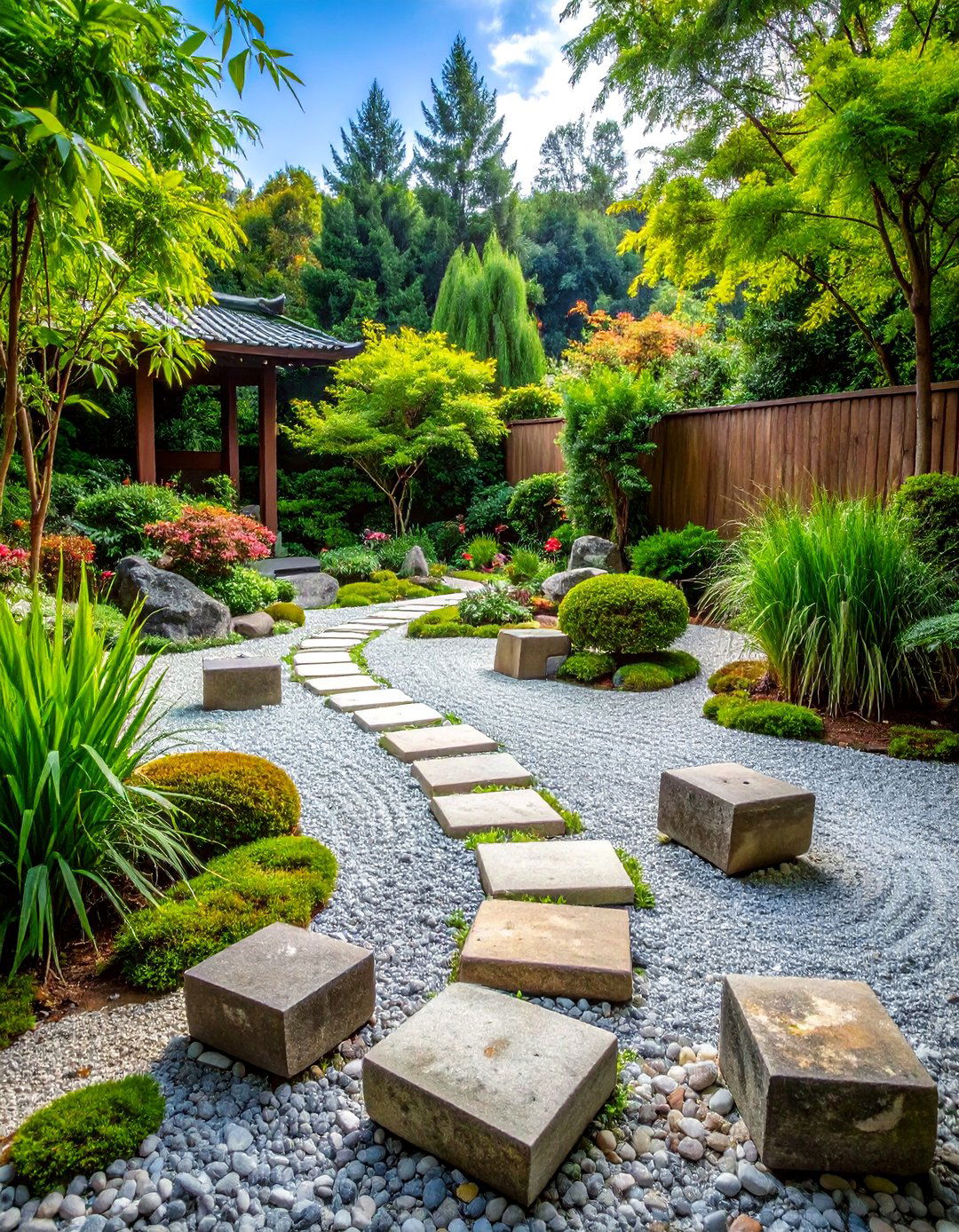
Build a flexible garden structure using cinder blocks that can accommodate rotating seasonal displays throughout the year. Design the layout to include various sized planting areas that can hold different types of containers and plant materials as seasons change. This approach allows for creative seasonal arrangements while maintaining a consistent structural framework. Spring bulbs can give way to summer annuals, then autumn displays, and winter evergreens within the same organized structure. The modular design makes it easy to reconfigure plantings while maintaining visual continuity. This method works particularly well for gardeners who enjoy changing displays and experimenting with different plant combinations.
25. Rainwater Collection Garden System
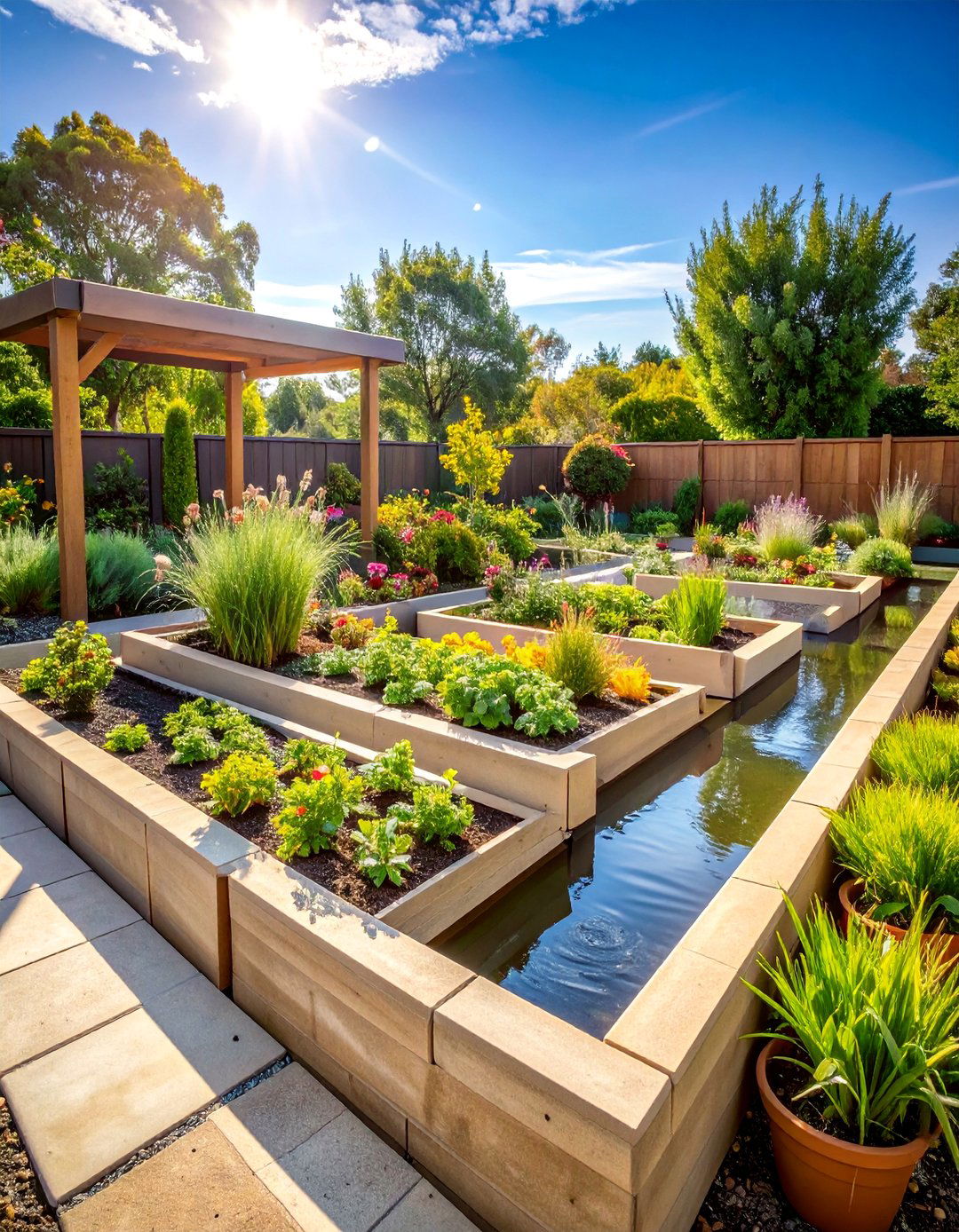
Integrate water conservation into garden design by using cinder blocks to create raised beds that collect and channel rainwater for irrigation purposes. Design the layout to include gentle slopes that direct water flow toward planted areas while providing storage areas for collected water. The raised structure improves drainage while making efficient use of natural precipitation. Plant species that thrive with natural rainfall patterns while including drought-tolerant varieties for drier periods. This sustainable approach reduces water usage while creating attractive garden displays. The system can include decorative elements like small channels or collection basins that enhance both functionality and visual appeal.
Conclusion:
Cinder blocks offer remarkable versatility for creating functional and beautiful garden spaces that address diverse gardening needs. From simple raised beds to complex water collection systems, these affordable building materials provide endless possibilities for garden design and organization. The modular nature allows for easy customization and expansion as gardens evolve over time. Whether you're interested in vegetable production, ornamental displays, or practical storage solutions, cinder blocks provide the structural foundation for successful garden projects that combine utility with aesthetic appeal for years of gardening enjoyment.


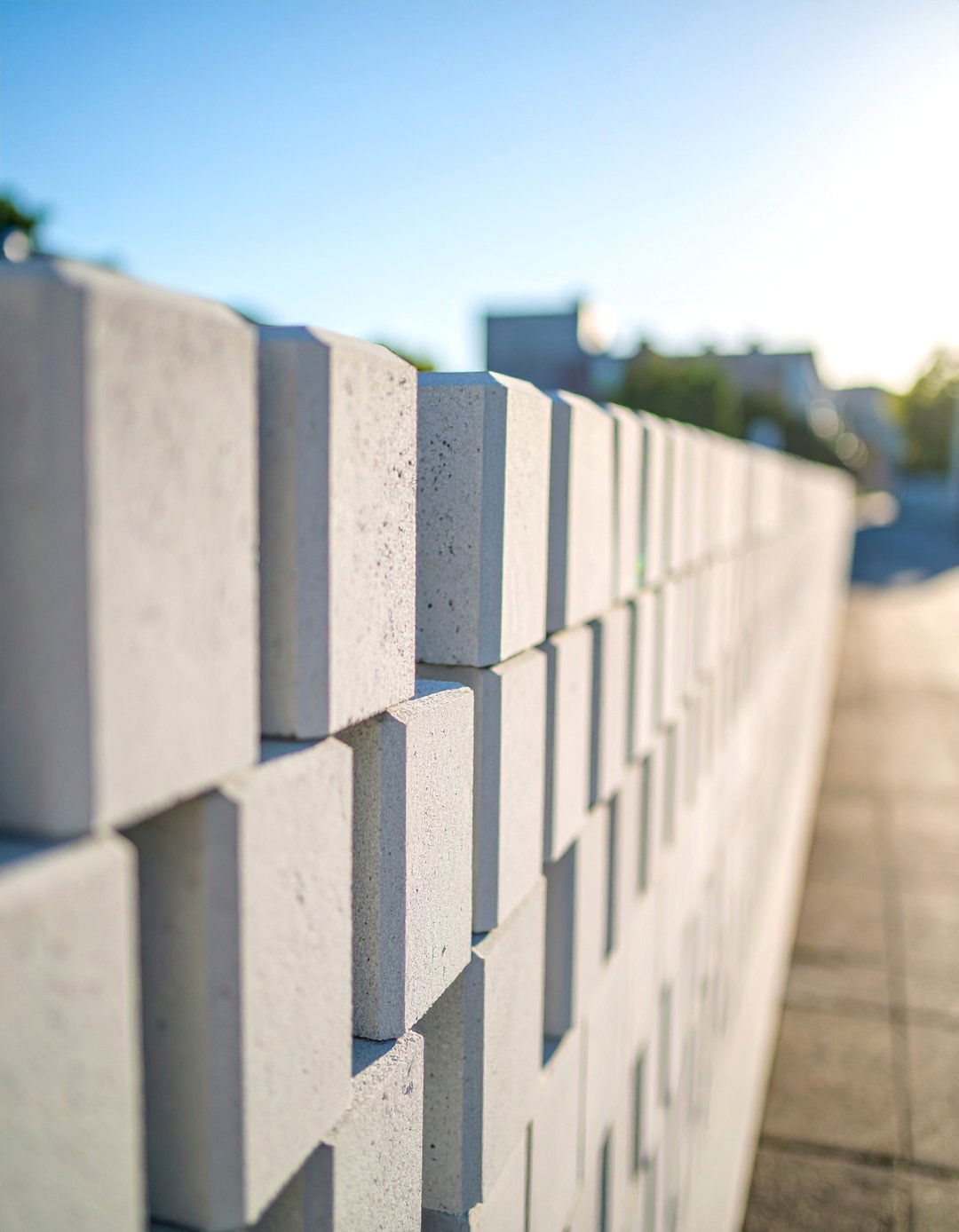
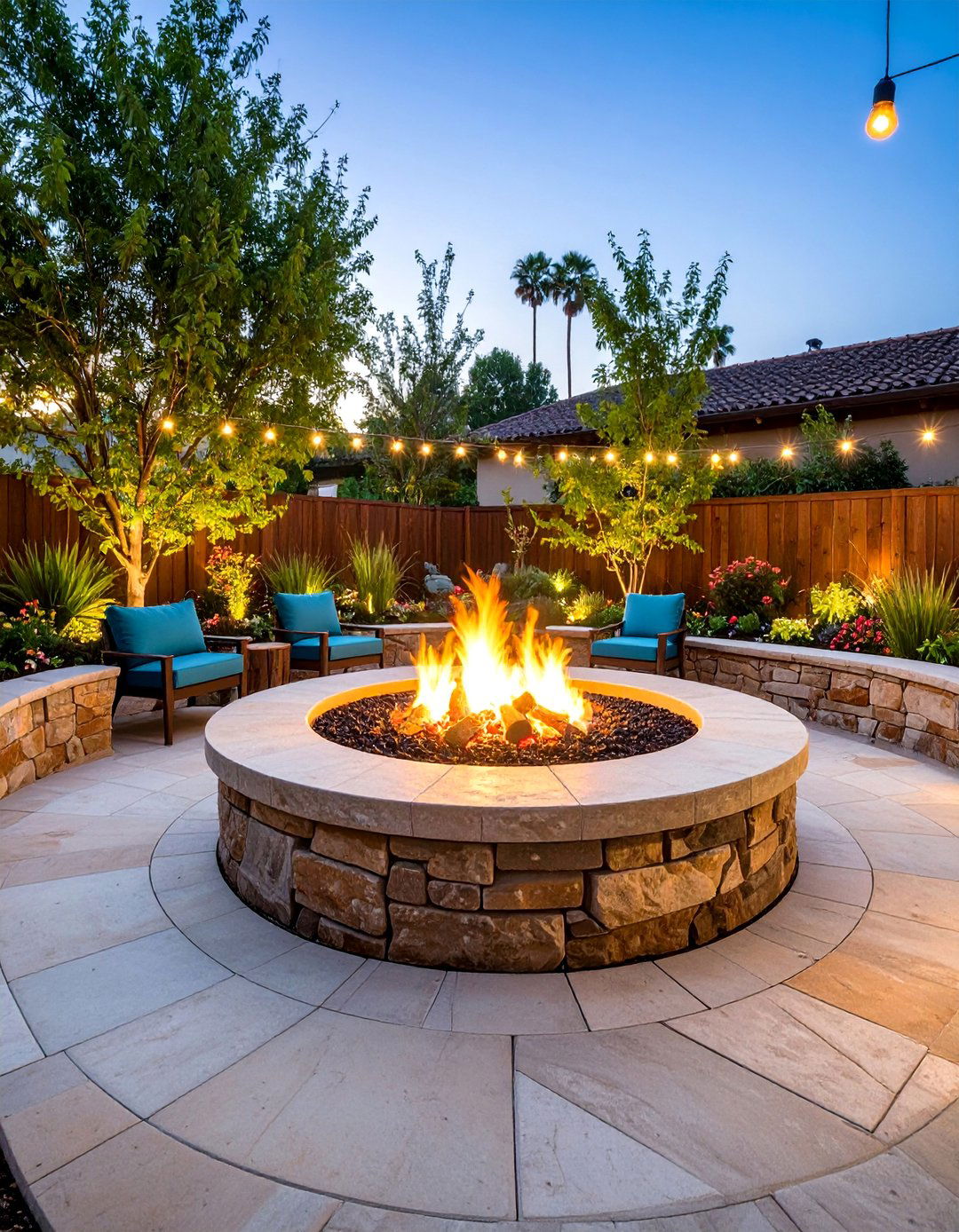

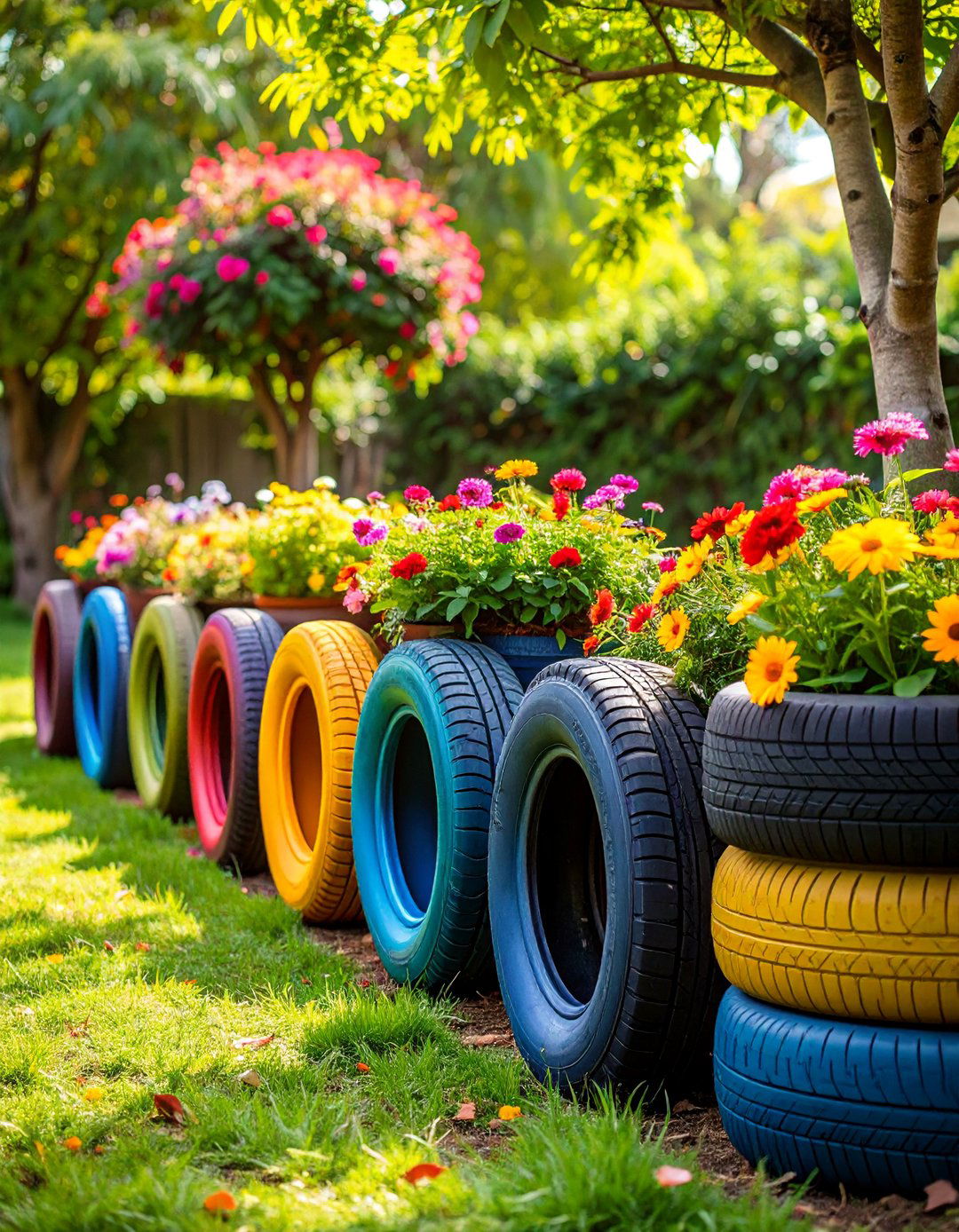

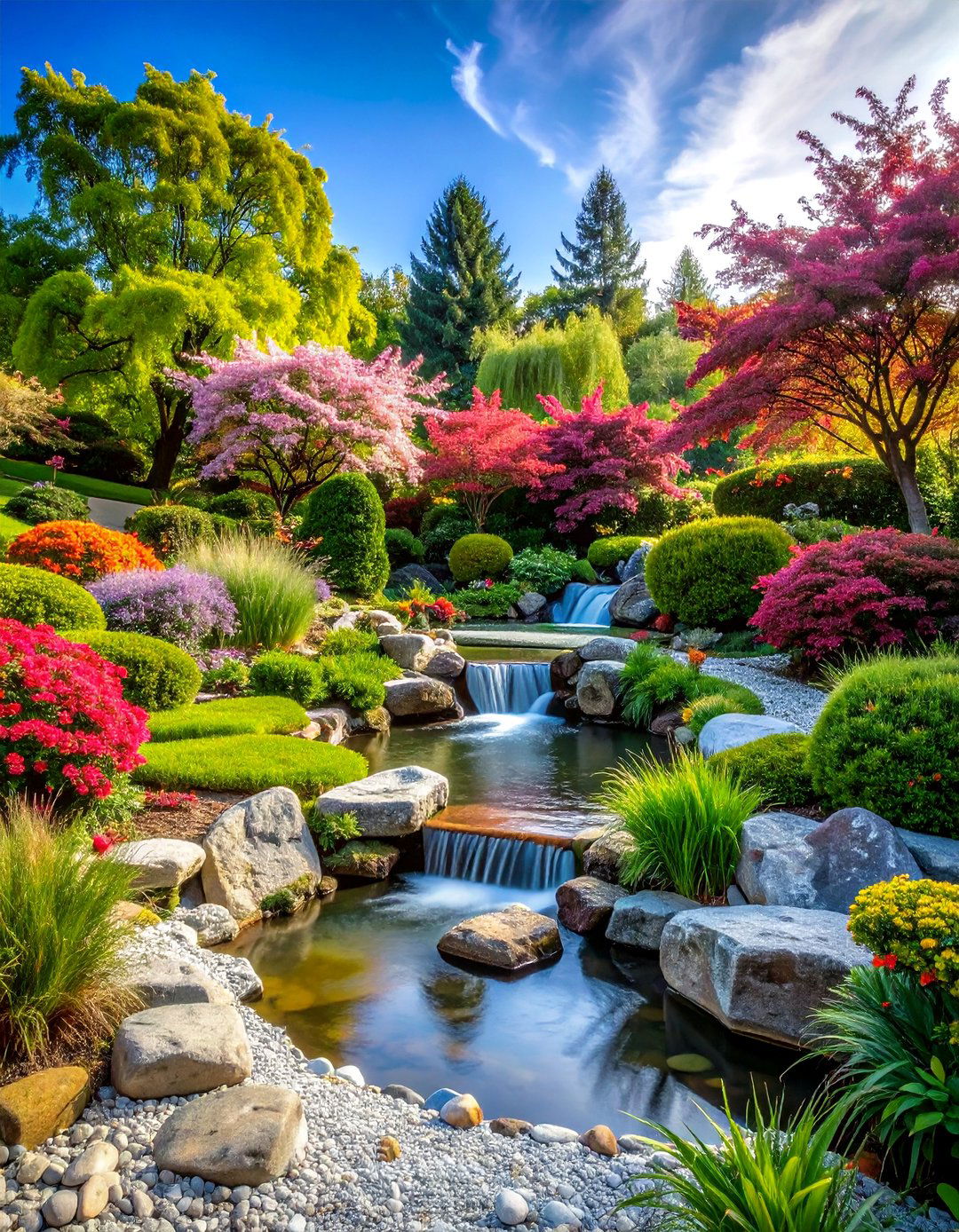
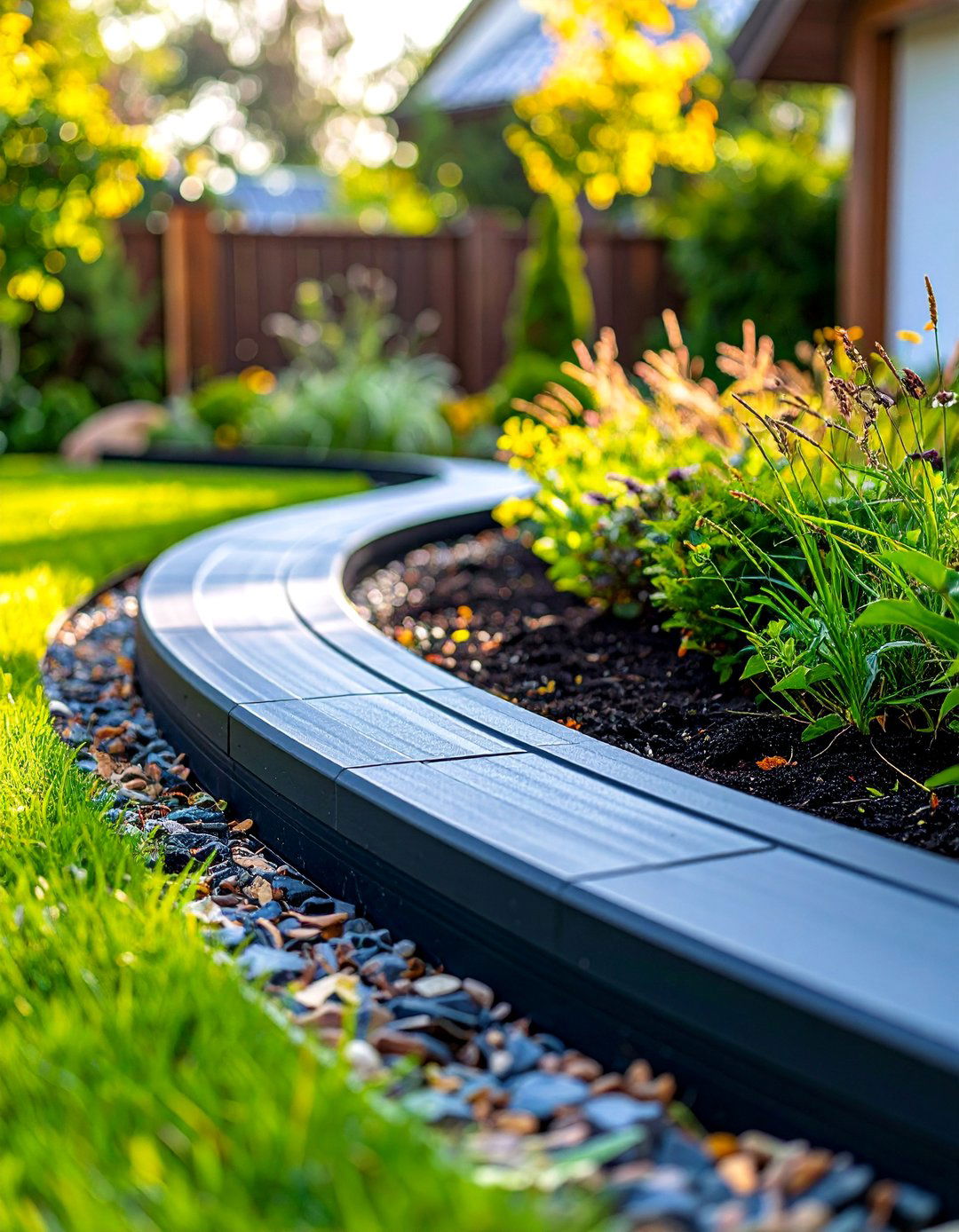

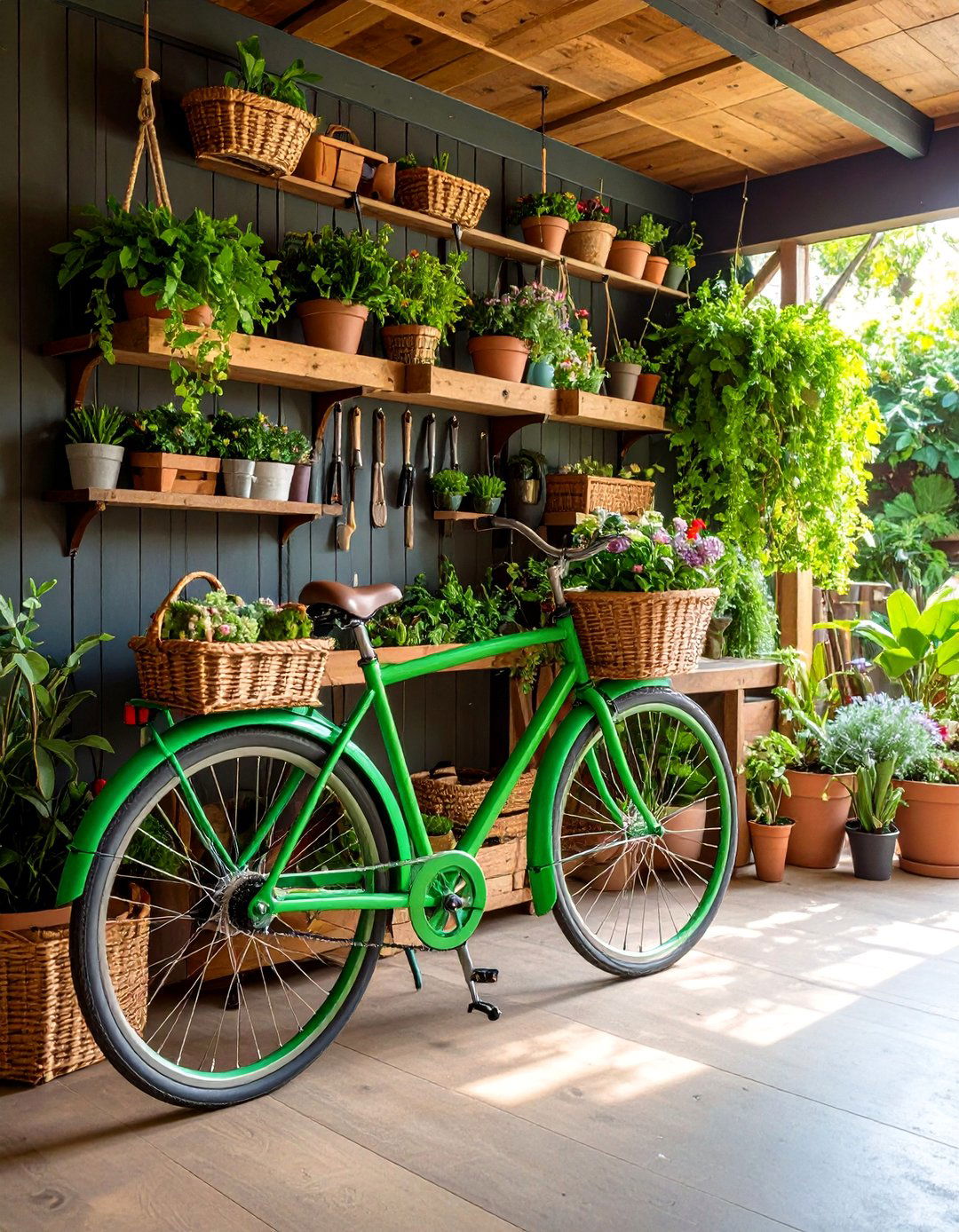

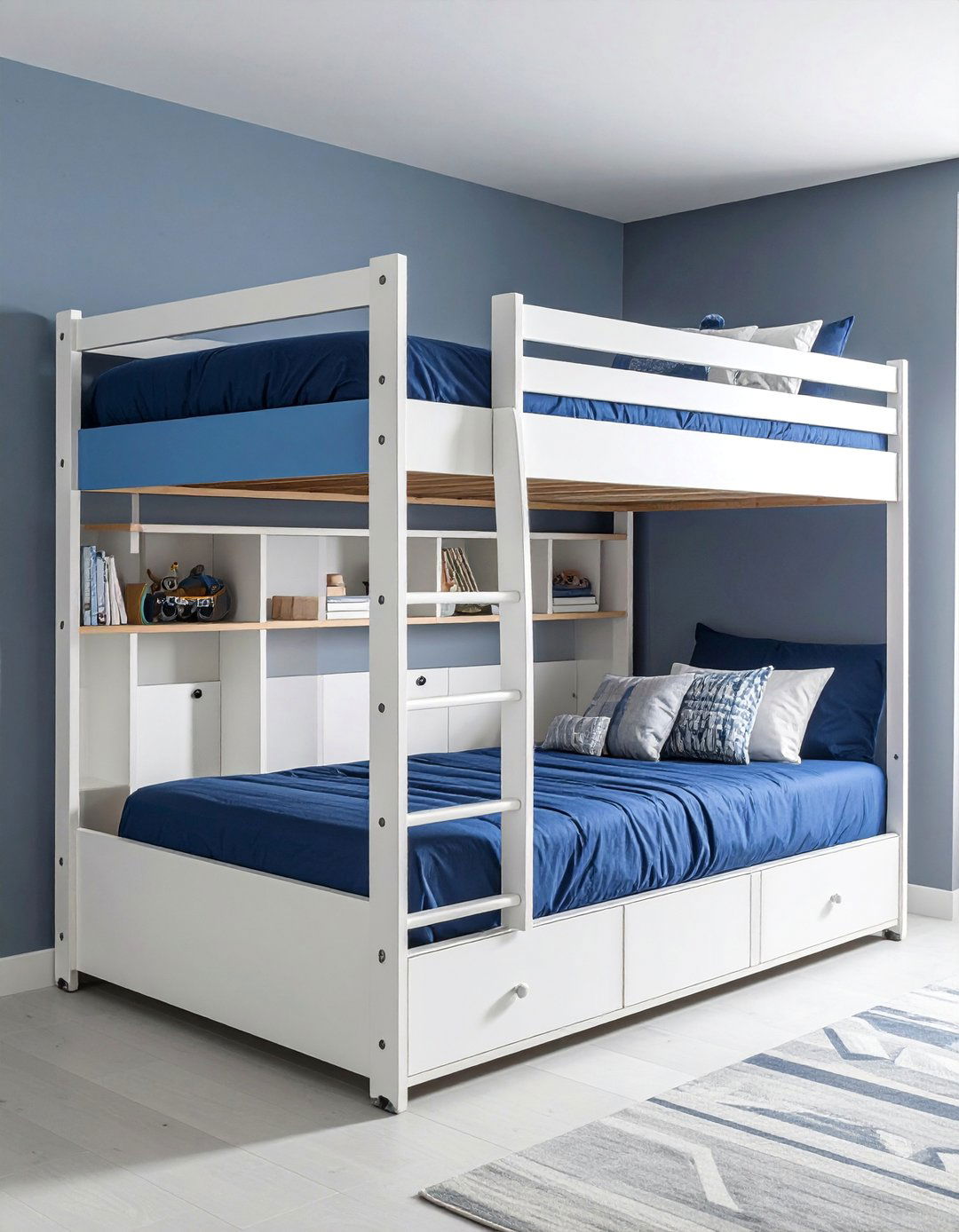
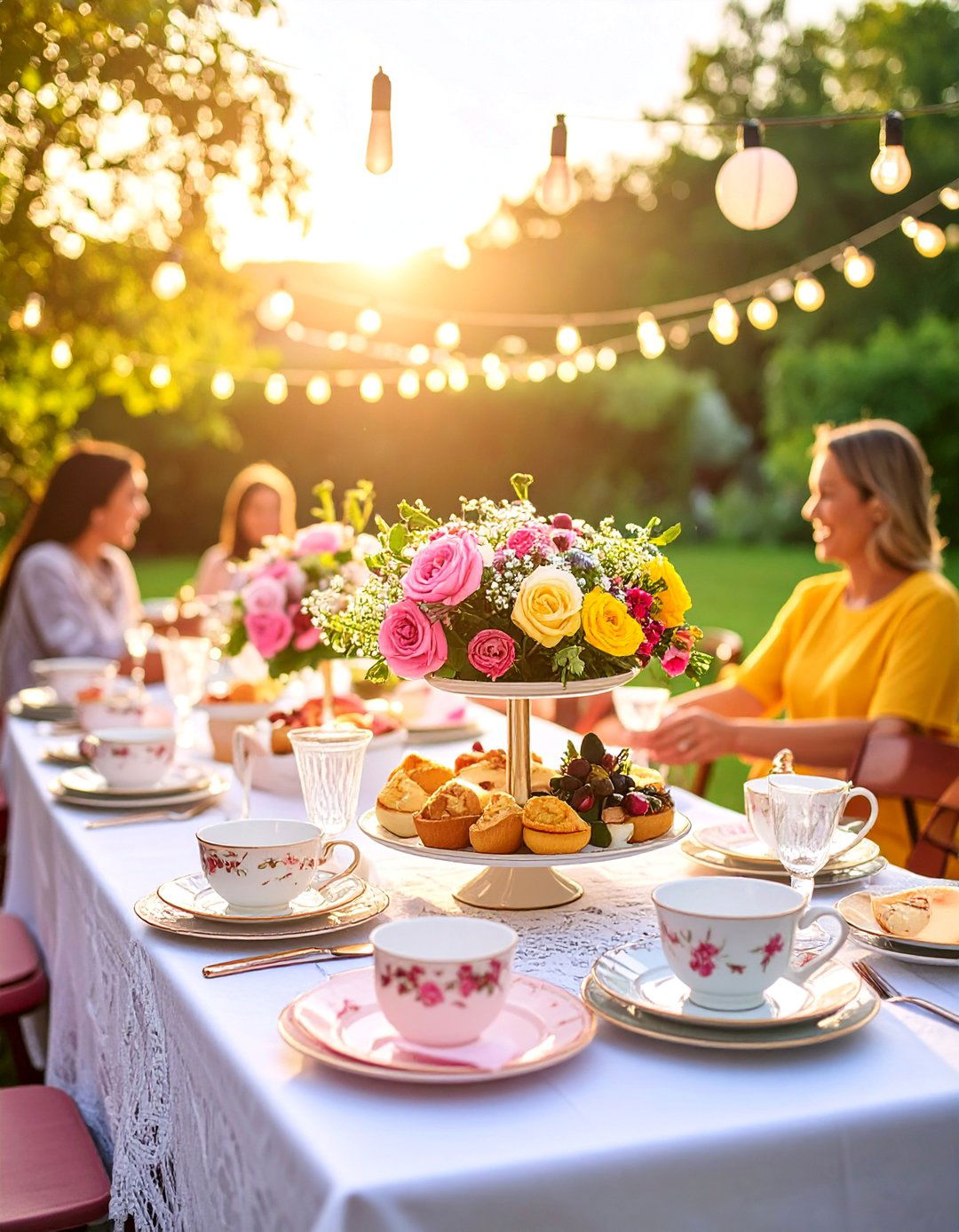
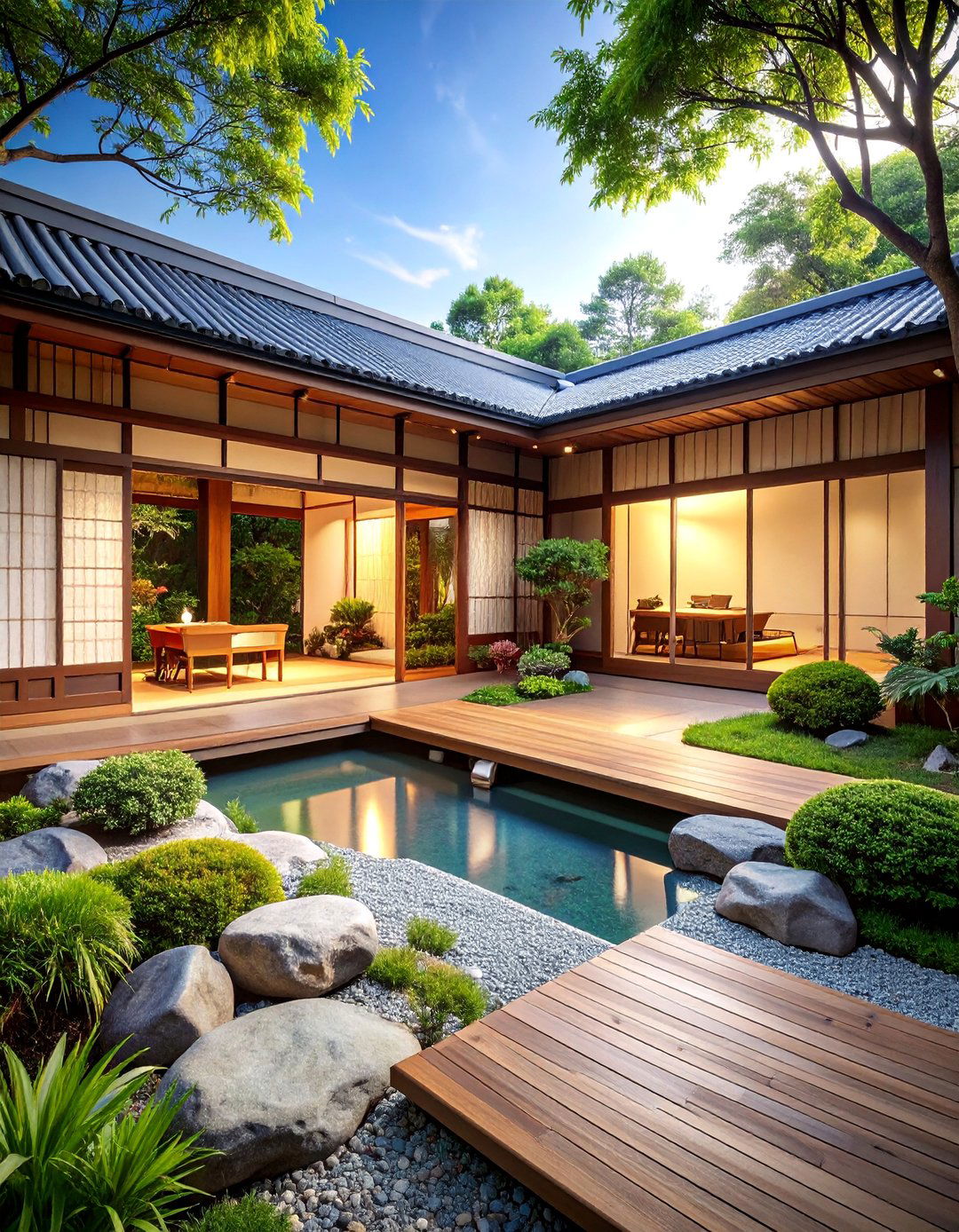

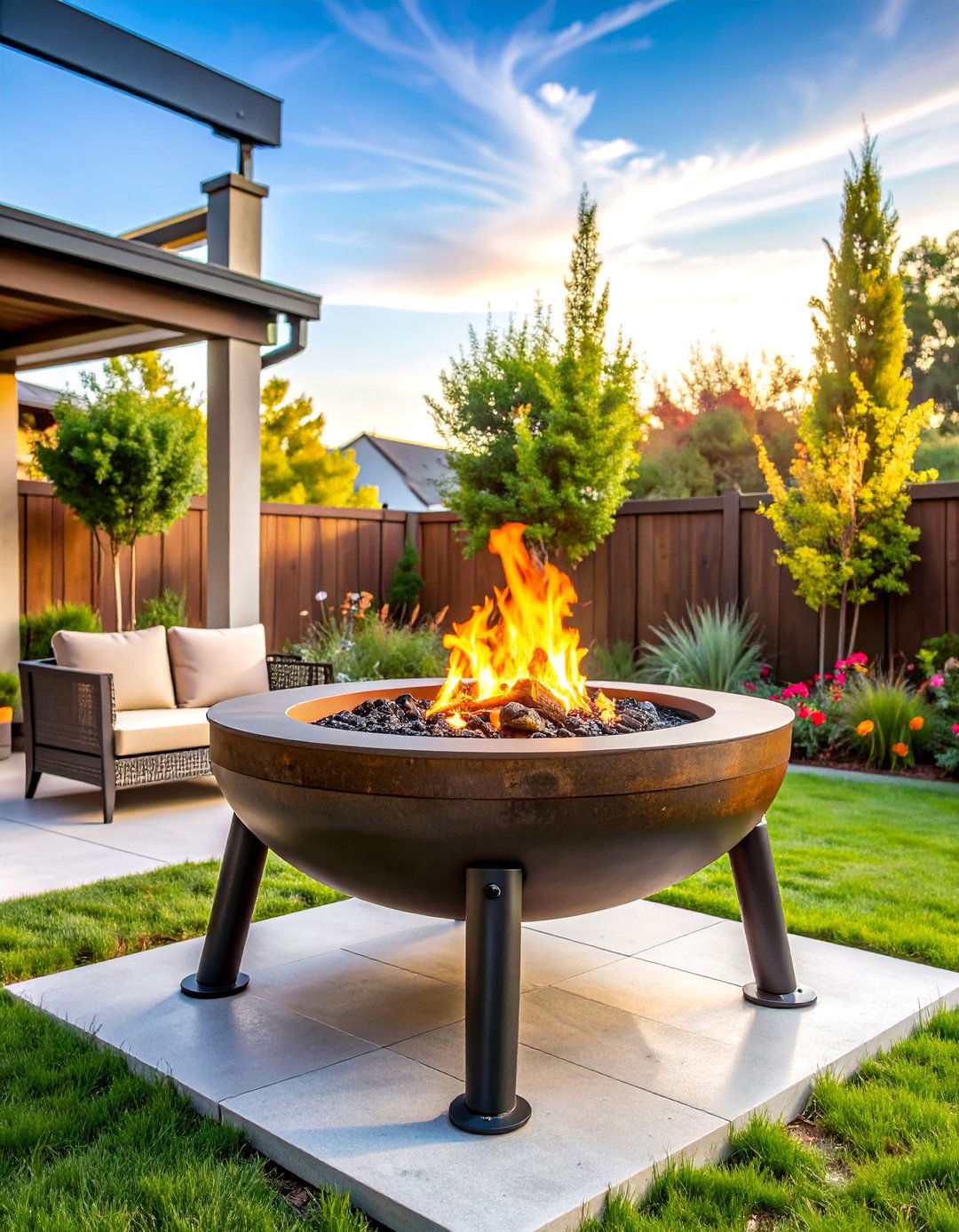
Leave a Reply